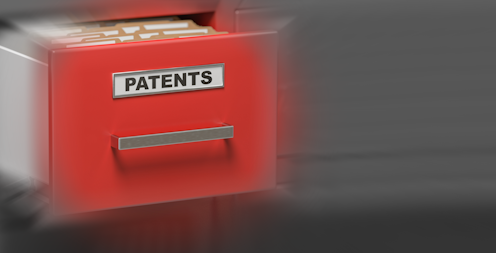Here's a scheme Labor should ditch in its bid to boost productivity. It's the 'patent box'
- Written by Beth Webster, Director, Centre for Transformative Innovation, Swinburne University of Technology

Australia’s new treasurer Jim Chalmers says his biggest priorities include boosting productivity and business investment[1].
If so, he would be wise not to follow in the footsteps of his predecessor Josh Frydenberg, who tried for more than a year to introduce Australia’s first so-called Patent Box[2] before the legislation lapsed ahead of the election without a vote.
First introduced in Ireland in the early 1970s, and adopted later in countries such as France, Spain, China and the United Kingdom, patent boxes are said to get their name from a box on the tax form that companies tick if they have income deriving from intellectual property[3], which is taxed at a discounted rate.
The theory is that if such income is taxed less, international corporations will do more of their research and development[4] in Australia.
When announced in the 2021 budget, the discount was to be limited to income from patents on medical and biological technologies, although (also before the bill became law) the 2022 budget announced plans to extend it[5] to agricultural and low emission technologies.
Income derived directly from patents in these fields was to be taxed at just 17%[6], instead of the prevailing company tax rate of 30%.
Doubts ahead of time
Doubts were expressed ahead of time. In 2015[7] the industry department’s office of the chief economist said while a patent box tax break would certainly increase the number of patent applications filed, most of the extra ones were “likely to be opportunistic” (filed on inventions that would have taken place without patents).
Any extra patent fees collected were unlikely to offset the tax lost.
And the advice had a broader point. Rewarding investors well after risky research had been undertaken was unlikely to do much to encourage such research.
Research and development tax credits, on the other hand, provide tax breaks at time the research is being funded, according to one Australian study, creating A$1.90[8] of research for each dollar of tax lost.
Read more: 'Patent boxes' are said to boost innovation. The evidence says they don't[9]
Supporters of the concept point to the Australian biotech company CSL Limited, which set up a new plant in Switzerland[10] rather than Australia in 2014 in part because Switzerland had a patent box and Australia did not[11].
Critics observe that income from patents is highly mobile[12], meaning it can be easily separated from real inventive activity moved across borders.
One study found 40% of multinational profits[13] had been moved from one location to another on the basis of tax rather than where the profits were made.
Read more: Artificial 'inventors' are pushing patent law to its limits[14]
Another study noted that businesses can get the tax breaks by acquiring[15] patents eligible for patent box treatment without doing the patentable research.
A review of the UK scheme published in November 2021 identified “abuse and boundary-pushing” and made a number of recommendations designed to refocus it on activity actually taking place[16] within the UK.







